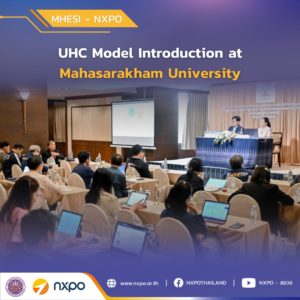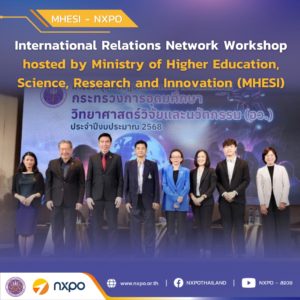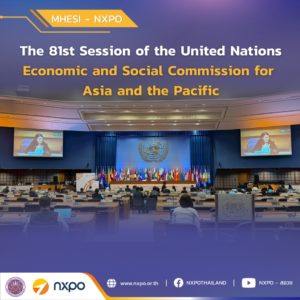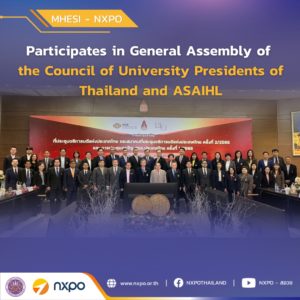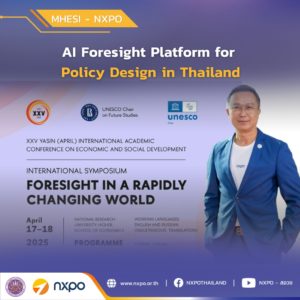NXPO President Dr. Kitipong Promwong joined a panel of speakers in Thailand Investment Webinar organized by Thailand Board of Investment on 9 December 2020. The webinar aimed to provide information on opportunities and investment support measures for Bio-Circular-Green (BCG) Economy in Thailand to prospective Japanese investors.
In his presentation, Dr. Kitipong gave an overview and strategy to develop Thailand’s BCG economy. Based on its rich biological diversity, Thailand sets its sight to employ technology and innovation to create additional value to bioresources. Players in each industry are categorized into two groups, the top and the base of the pyramid. The top is made up of a small number of players who require advanced technologies to create higher value products, whereas the base represents a large number of players, mainly farmers and SMEs, who need moderate and proper technologies to elevate quality and productivity. Under the BCG economy model, this strategy is applied to 4 sectors as follows:
- Agriculture and Food. Functional foods and functional ingredients are the target products of the top, whereas to goal for the base involves employing precision agriculture and smart farming technology to improve quality and reduce production cost of farm products.
- Biochemical, Bioenergy and Biomaterial. Target products of the top are high-value chemicals and materials, whereas those of the base are biofuels, i.e. ethanol, biodiesel and energy derived from biomass through application of fermentation technology.
- Medical and Wellness. Target products of the top are biologics such as cancer drugs, whereas those of the base are herbal products.
- Tourism and Creative Industry. The strategy is to employ technology such as digital technology to create mobile applications to enhance medical services.


Dr. Kitipong further highlighted Thailand’s strength in agriculture. The country is the top producer and exporter of a number of farm products such as cassava, sugar cane, natural rubber, oil palm, rice and corn, as well as herbal plants, fruits and vegetables. These farm products are destined to be sold as low-priced agricultural commodities or transformed into processed foods. In fact, Thai food processing industry is well-known for quality ready-to-eat foods, ranking among the world’s top food exporters. The BCG economy strategy is to advance this food processing industry from producing ready-to-eat foods to manufacturing functional foods and ingredients, as well as transform biomass, by-products and wastes into higher value products such as plant-based textile fibers and novel products from natural rubber. As Thailand is blessed with abundant farm products, the country is seeking collaboration with foreign partners to develop and employ advanced technologies to utilize this biomass through investment and tax incentive measures as well as applying and promoting biopower technologies to convert agricultural wastes to electricity.
Dr. Kitipong concluded his presentation with the government’s actions to promote research and innovation to support BCG economy, which include supporting infrastructures such as science parks which are already set up in four regions of Thailand to encourage enterprise innovation and co-creation with local universities, manpower development programs such as Work-integrated Learning (WiL) and Talent Mobility, an establishment of BCG action fund, and deregulations.

